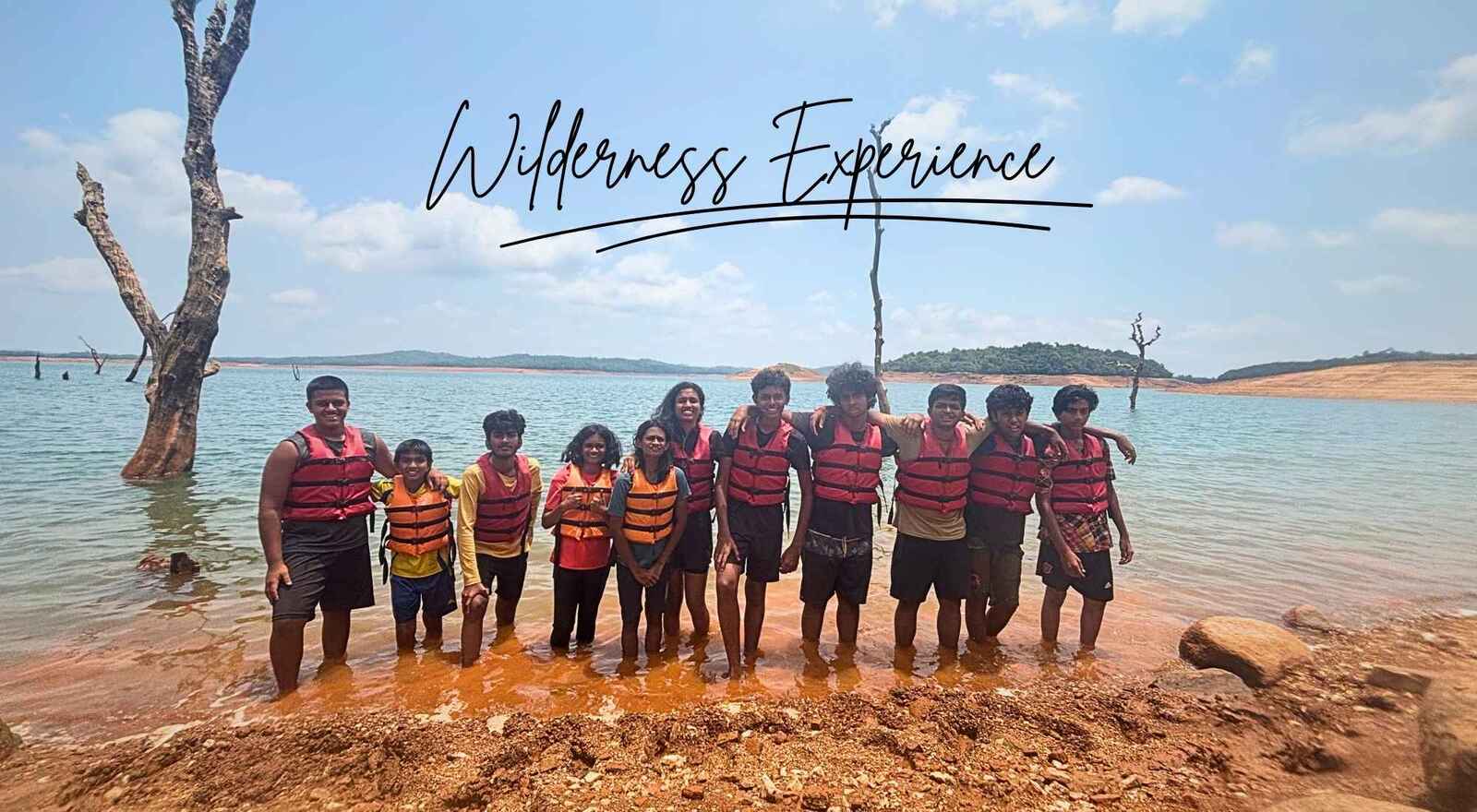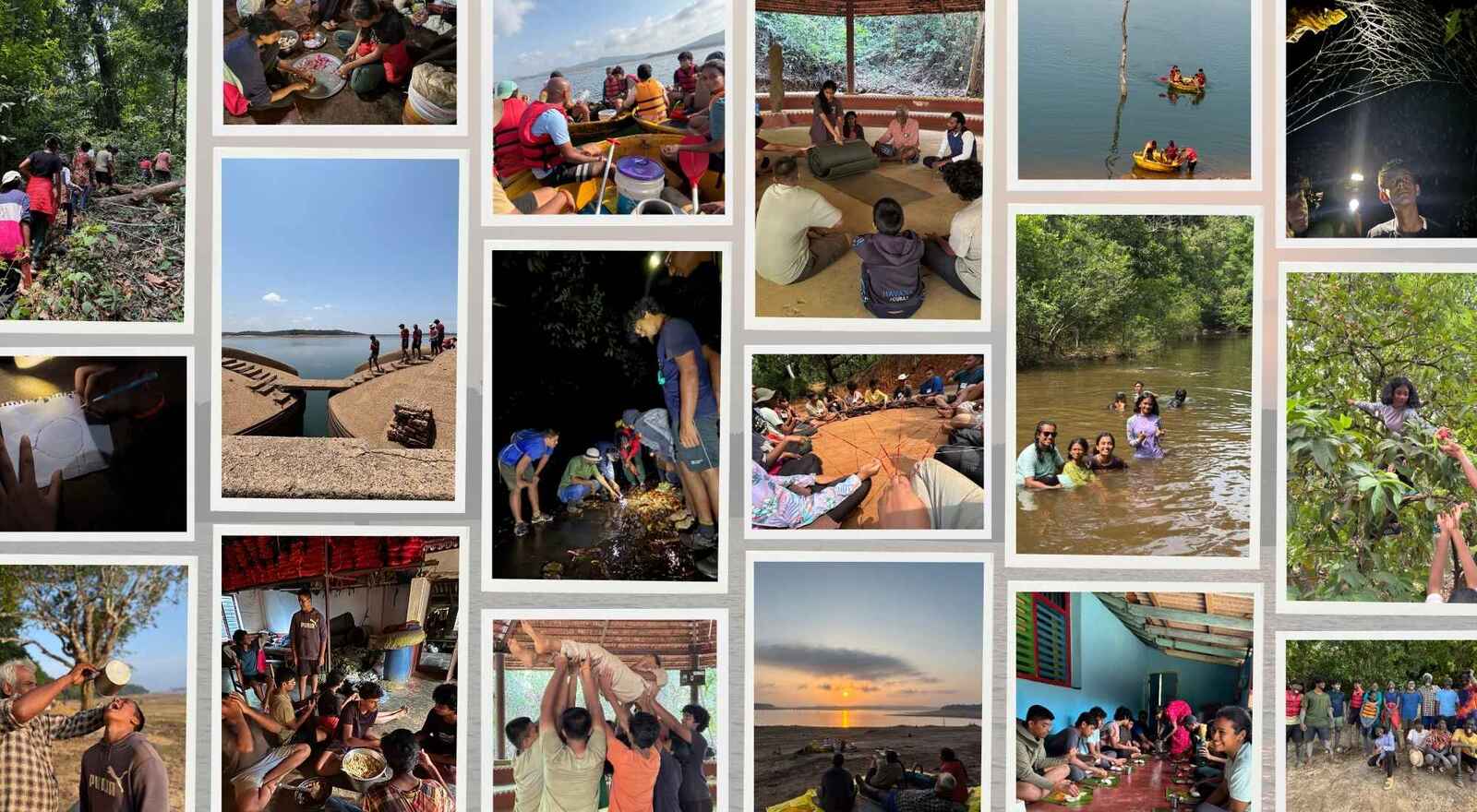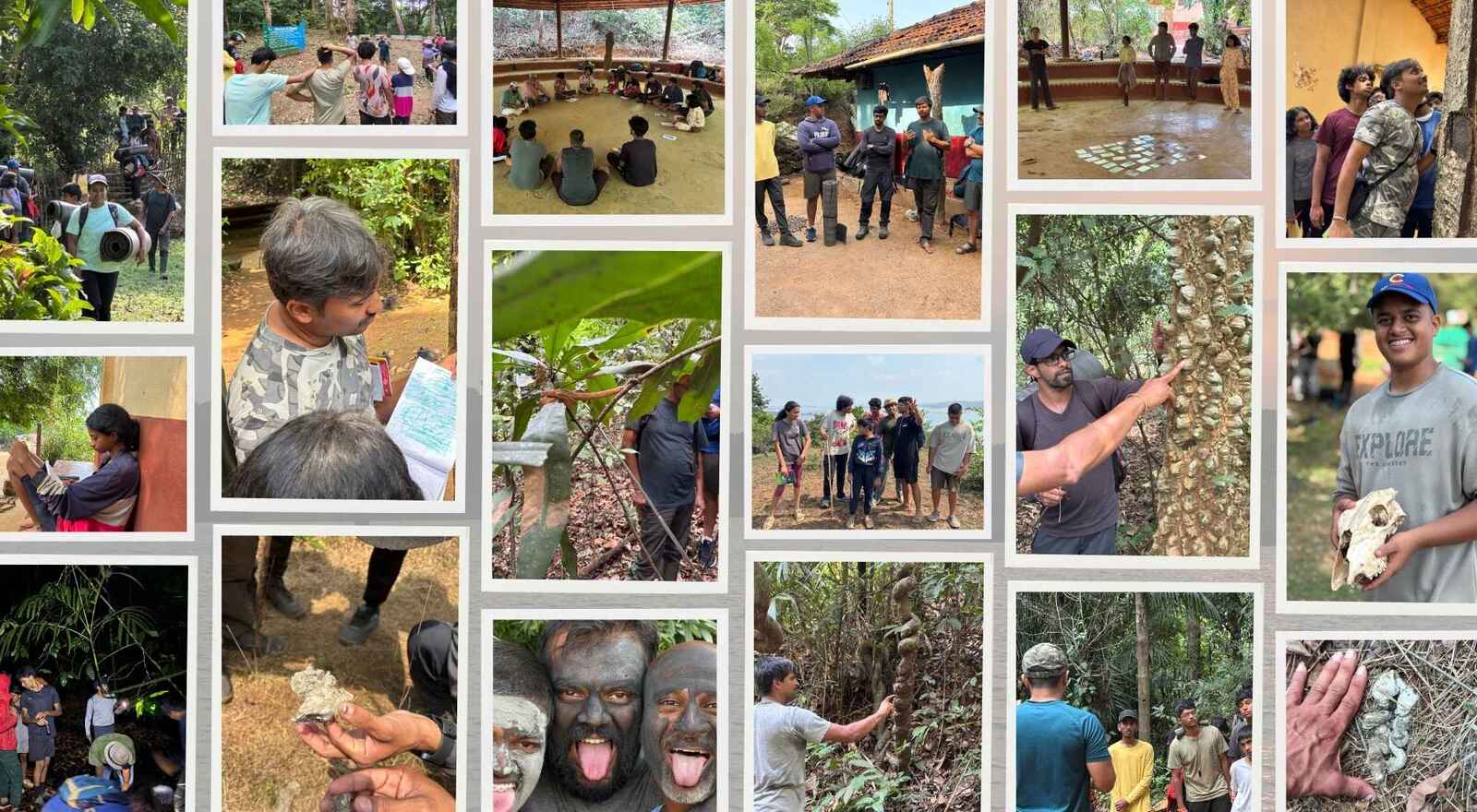28-Days Wilderness Experience: A Transformative Journey Beyond Classrooms
At Dew Drops Academy, we often speak about learning beyond books — about education that shapes not just intellect, but also character, resilience, and empathy. This summer, eight of our adolescent children lived that philosophy, quite literally, in the heart of the Western Ghats. They participated in a 28-day Wilderness Experience at Honnemaradu, curated by The Adventurers – A Wilderness School and Indian Institute for Adventure Applications (IIAA).
What unfolded was far beyond an adventure — it was a life-changing journey of self-discovery, resilience, teamwork, and a deep connection with nature.

A Natural Beginning
The journey began with a detailed orientation, setting the stage for the weeks ahead. Children learned about the terrain, survival essentials, and most importantly, the rules of safety and mutual respect that would guide every experience during their stay.
Exploring Land and Water
- Trekking to sacred and historic spots like Bheemana Hejje and the hidden ruins of Kanoor Kote took them deep into the forests, where the silence of nature revealed more than words ever could.
- Acqua sports such as swimming, rafting, and coracling introduced them to the vast and unpredictable Sharavathi backwaters. Some were hesitant at first—paddling through headwinds, diving into deep waters—but every child returned with newfound confidence and trust in their bodies.
- Island camping required them to pitch tents, make firewood arrangements, cook simple meals, and manage with just the bare essentials. Sleeping under the stars was an unforgettable experience for many.

These pictures from the Honnemaradu Wilderness Experience tell only a fraction of their story; they don't begin to convey the incredible journey they embarked.
Surviving and Thriving
Conversations with the Forest
- Sessions on herping (reptile tracking), bird watching, and forest ecology awakened curiosity and reverence.
- Journaling and quiet reflection became part of daily life. Children wrote about their fears, insights, and the subtle shifts they noticed in themselves.
- There were discussions around sustainable living, the fragility of ecosystems, and the displacement of indigenous communities—giving children a real understanding of social and environmental justice.

Learning and Interacting with Resource People
Emotional, Mental, and Psychological Stretch
A Few Unspoken Lessons
- “We can live with very little.”
- “Nature cannot be taken for granted.”
- “It’s okay to not be in control of everything.”
- “We’re stronger — mentally and emotionally — than we thought.”
- “Banter and humour can be healing.”
- “Kindness is a strength, not a weakness.”
- “Respect isn’t demanded — it’s earned through consistency and care.”
